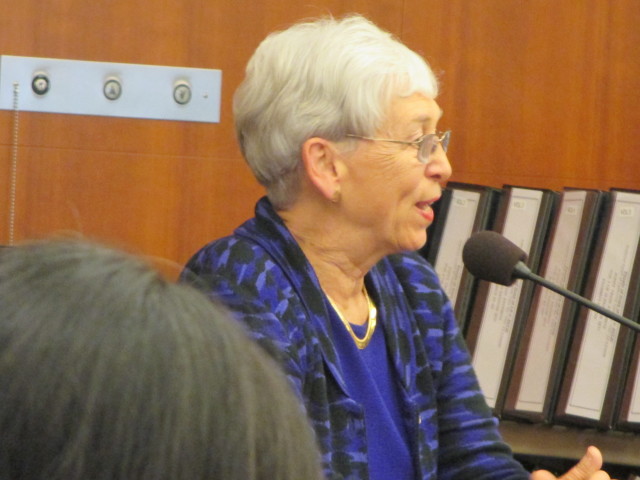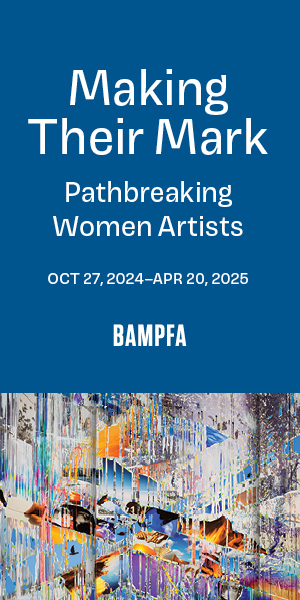
By Tim Redmond
OCTOBER 31, 2014 – I was called for jury duty this morning, so I missed part of the City College trial, but apparently nothing profound. (No, I wasn’t chosen for a criminal trial. I never get picked for criminal juries, although I was the only one of 80 prospective jurors in the room who actually wanted the job.)
I got to the civil side of the courts in the afternoon, in time to see ACCJC head Barbara Beno back on the stand, this time called by the defense.
I’m going to take a step back here, since the testimony part of the trial is supposed to wrap up tomorrow, and closing arguments will be set at a later date. My impressions – biased, or course, as they always are – go like this:
If the case had gone before a jury, City Attorney Dennis Herrera and his team (which has been really impressive all around) would already have won.
Beno has spent many hours on the stand. I walked away from it all thinking she was arrogant, mean, and lacking in compassion. She seemed to try hard to duck questions. I’ve never met her before, but after watching all week, I understand why members of the state Legislature – on both sides of the aisle – have serious problems with her and her agency.
The other ACCJC commissioners and staffers who took the stand seemed to act as if shutting down City College was just another day at the office; there was no consideration for the impact on more than 80,000 students and thousands of faculty and staff, not to mention the economy of a city. The ACCJC lawyers were condescending to the city’s witnesses.
As I sat there listening to commission members and staff talking about the “tough decision” to shut down the school, I kept having Caddyshack flashbacks – to the scene where Judge Smails tells Danny that he’s “sent boys younger than you to the gas chamber. I didn’t like to do it, but I felt I … owed it to them.”
The witnesses were worried about the school’s financial solvency – so they made a decision that pretty much guaranteed the finances would get a lot worse, just as the people of San Francisco were voting to give City College more money. And they didn’t seem to think much at all about the teaching that was going on in the classrooms, the tens of thousands of people who were learning skills and getting an education. Those people didn’t seem to matter.
I can’t imagine a jury in San Francisco – where pretty much everyone knows someone who has a connection to City College – siding with the accreditors at this point.
But there is no jury of our peers; the outcome will be in the hands of one person, Judge Curtis Karnow, and he gave little indication during the trial of where he will come down.
Beno was her typical self this afternoon, trying to explain why the commission voted to terminate the accreditation of City College without giving the school the chance to respond to or rebut the factual claims that were used to support the termination.
The visting team report was supposed to be the basis of any commission action. But the commission went way beyond that report, adding in new areas where City College didn’t meet the ACCJC’s standards. And at one point, Beno admitted that she wasn’t sure exactly why.
Deputy City Attorney Ron Flynn picked on one of the areas where the visiting team had found City College in compliance but the commission decided that the school didn’t meet the standards.
The standard:
The institution’s programs and services are aligned with its mission. The mission guides institutional decision-making, planning, and resource allocation and informs institutional goals for student learning and achievement.
“What,” Flynn asked, “was the deficiency?”
“I cannot answer that,” Beno said.
Then Susan Kazama, the head librarian at Kapiolani College in Oahu, Hawaii, took the stand. She’s a member of the commission, and has been since 2010.
She said that she’d spend between three and five hours analyzing the City College application for accreditation in 2012, and maybe another two or three hours looking at the termination proposal a year later. She said she voted for the termination because she didn’t see any improvement in the school’s response to the ACCJC’s mandates.
She was followed by Marie Smith, a retired community college administrator who worked at several schools in California and served on the ACCJC panel. Smith’s testimony was stunning: She said that she was worried that City College was in such financial trouble that it might not survive – even though she knew that the state and the city had both recently passed measures to inject a lot more money into the institution.
When asked why she voted to terminate accreditation in 2013, she said: “I felt it was my responsibility.”
Smith said that she had heard there were “forces that were not in support” of the ACCJC’s agenda at City College. She couldn’t quite point to any of them, but she was sure that such forces existed.
She also complained that when the school sent a team to the ACCJC to respond to its allegations, there were no members of the Board of Trustees present. That brought an audible gasp from the audience: At the time, the elected trustees had been suspended from their jobs, and the school was under the rule of a special trustee. The elected board didn’t even meet.
Smith also said that she thought City College would not be able to continue to meet its financial obligations “without things like parcel taxes.” But the city had just passed a parcel tax for that very reason.
Here’s a snippet:
Q: When you voted for termination, did you know that there was more money available?
A: I knew that.
Q: And did you take that into consideration?
A: I did, but the college in difficult financial times hadn’t made changes in its mission.
That explains one of the central issues here: The ACCJC wanted City College to narrow the scope of what it does, to move away from an open-access policy. Under immense funding pressure during the recession, the school instead chose to cut costs (including salaries) but maintain its core mission – and go to the San Francisco voters to ask for funding to maintain that mission.
The voters agreed. The commission didn’t care.


